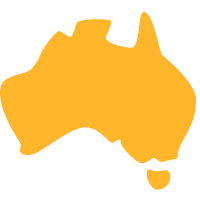Launch of the National Ageing and Aged Care Strategy for People from CALD backgrounds
The Government yesterday launched the National Ageing and Aged Care Strategy for People from CALD backgrounds which will help inform the delivery of Living Longer Living Better – the Government’s $3.7 billion aged care reform package.
Mr Butler said the growing number of older people from CALD backgrounds have specific needs that must be addressed.
“Around 20 per cent of people aged over 65 years were born outside Australia and by 2021 that number will rise to 30 per cent.”
“Older people from CALD backgrounds often have different cultural, linguistic and spiritual needs which can affect the type of care and services they want and need.”
“In many cases, the onset of dementia causes older people from CALD backgrounds to lose their English language skills and revert to their first language. Clearly that is a unique challenge for the person affected, for families and for the aged care provider.”
“The strategy is designed to inform the way Government supports the aged care sector to deliver the care and services appropriate and sensitive to the needs of older people from CALD backgrounds.”
Initiatives outlined in the strategy include:
- Develop structured pathways to facilitate the employment of appropriate bilingual staff in the aged care system.
- A ‘rolling review’ of the National Aged Care Advocacy Program (NACAP) to include an emphasis on promoting, supporting and maximising access to advocacy for older people from CALD backgrounds, their families and carers.
- Ensure that the Aged Care Complaints Scheme is promoted to CALD communities, including by use of interpreting and translating services.
- Work with the CALD sector to provide cultural competency training for promotion and incorporation into all aged care services.
Mr Butler said the strategy would be an important framework in the delivery of the Living Longer Living Better aged care reform package.
The strategy is available on the Health Website

Acknowledgements
Centre for Cultural Diversity in Ageing acknowledges and pays respect to the Wurundjeri people of the Kulin nation, on whose land this website was developed. We pay our respects to Aboriginal and Torres Strait Islander peoples, their ancestors and elders, both past and present and acknowledge their continuing connection to land, sea and community. We hope our work contributes to the wider project of respect and recognition between cultures in Australia. Centre for Cultural Diversity in Ageing receives project funding from the Australian Department of Health and Aged Care to administer the Partners in Culturally Appropriate Care (PICAC) program in Victoria.
Did you know?






